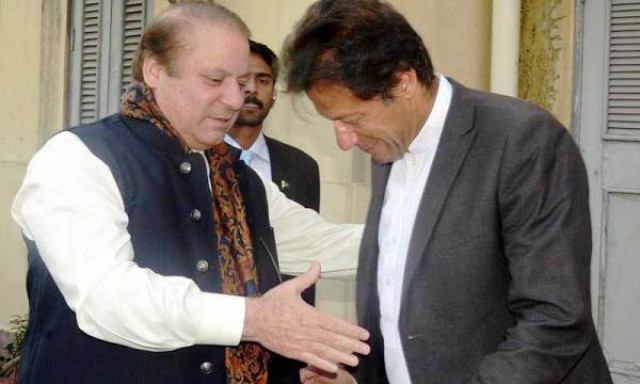A final parting of ways?
The Sharifs have had differences with the PPP on such as the RGST and the phasing out of the petrol subsidy.

A final parting of ways?
The Sharifs have had differences with the PPP on such issues as the levy of the reformed general sales tax (RGST) and the phasing out of the petrol subsidy. A stand against either is based on populism and ignores the economic soundness of each proposal. The government, regardless of which political party runs it, cannot sustain itself unless it a) widens the tax net and brings more people under it and b) phases out billions of rupees in annual subsidies that are not necessarily targeting the poor or financially weaker segments of society. Its failure to commit to both is perhaps the primary reason why Pakistan finds itself in a precariously financial situation with a fiscal deficit that has become so much out of control that already-reduced social sector development has been slashed even further. And as this has happened, the defence budget has been quietly increased, with no one in parliament, least of all the PML-N making a fuss about it.
As for the RGST, there was much disinformation circulated on it since it wouldn’t have increased the tax rate by more than one percentage point, which by any yardstick is not that much of a significant rise. However, it would have brought large segments of hitherto undocumented sectors of the economy — perhaps a key constituency of the PML-N’s — under the tax net. This would have been the preferred option to follow because it reduces our fiscal deficit, lowers inflationary pressures by cutting down on government borrowings from the State Bank to finance its expenditures (and this is done by printing more money) and keeps under check Pakistan’s dependence on foreign aid. The last point, in particular, is an important one because it is linked to our sovereignty as a state and this in turn is a big issue these days with the Raymond Davis affair. In a sense, and some of our readers may not like this (but the logic is sound and cannot be denied), when the Americans tell us that were Pakistanis to pay their taxes honestly, there would not be such a need for foreign aid, and hence they would be freer to act without foreign pressure, they are right. Moving on to the issue of corruption, the PML-N is dismayed by the record of the PPP on it. However, it isn’t an angel in this regard either and several of its own legislators have been found involved in acts that can hardly be deemed as kosher.
As for the consequences of the split, it is unlikely that there will be any in practical terms in he sense that both parties were already at odds with each other for the past several months. That said, the PML-N has been firmly in the saddle in Punjab and it didn’t really need the PPP’s MPAs to even form a government, so it cannot so that its past performance — which has been thoroughly unremarkable — had anything to do with friction with the PPP. If anything, the latter can claim that it tried its best to entertain the wishes and views of the PML-N’s leadership and tried to take it along in terms of managing the economy but that the split happened because the party was unreasonable and expected an economy the size of Pakistan’s to be turned around in a matter of a few weeks. Clearly, one would assume the situation for the PPP is not what the PML-N would like to be in, if it were, say, given a chance at the centre.
Published in The Express Tribune, February 26th, 2011.















COMMENTS
Comments are moderated and generally will be posted if they are on-topic and not abusive.
For more information, please see our Comments FAQ